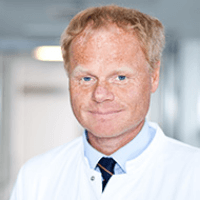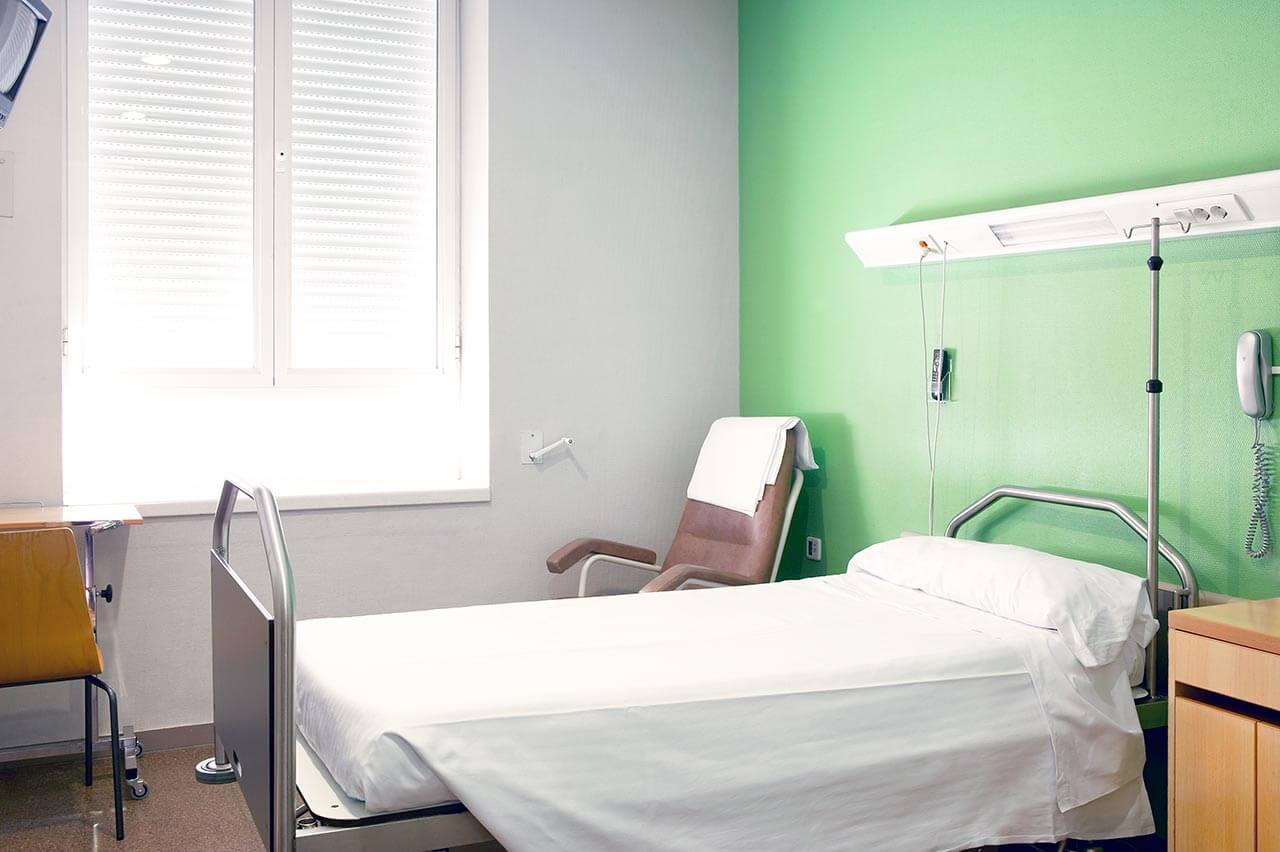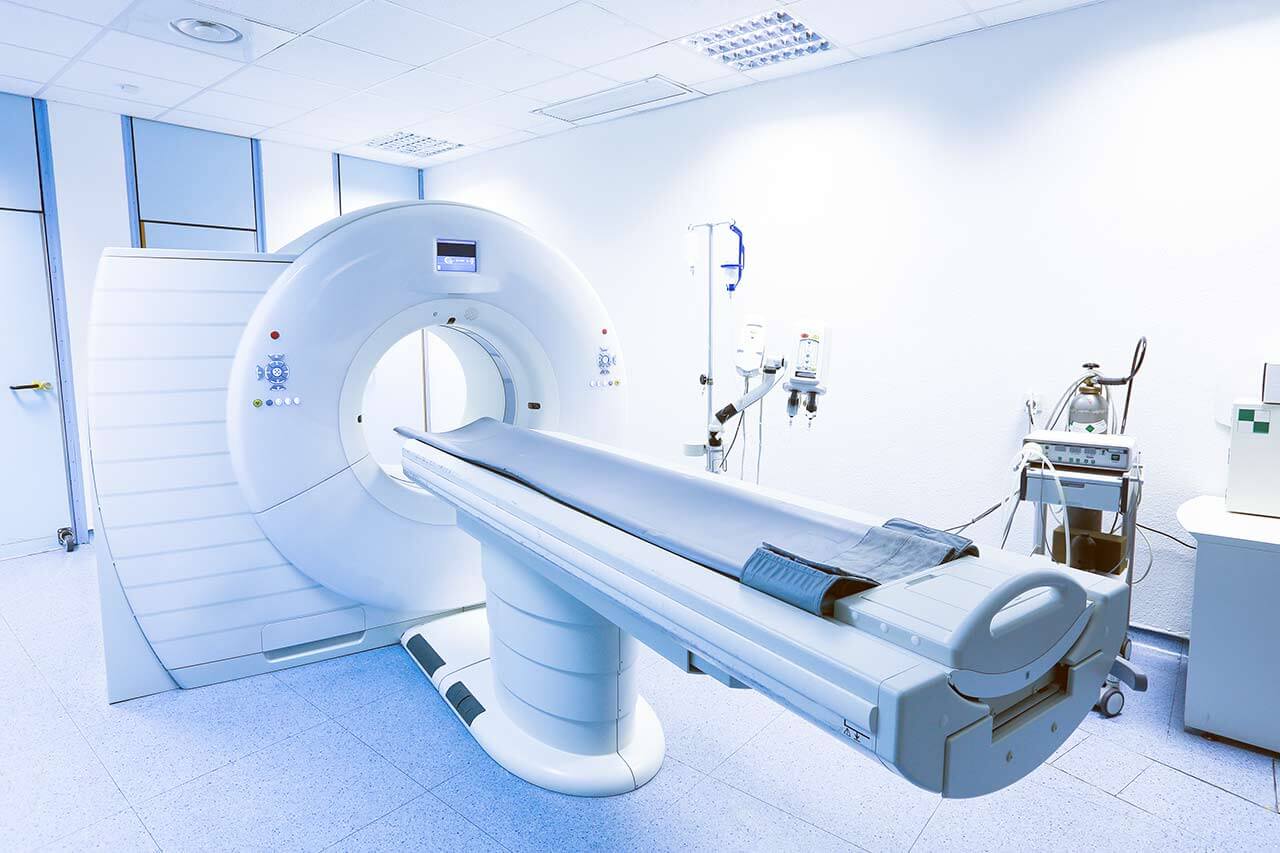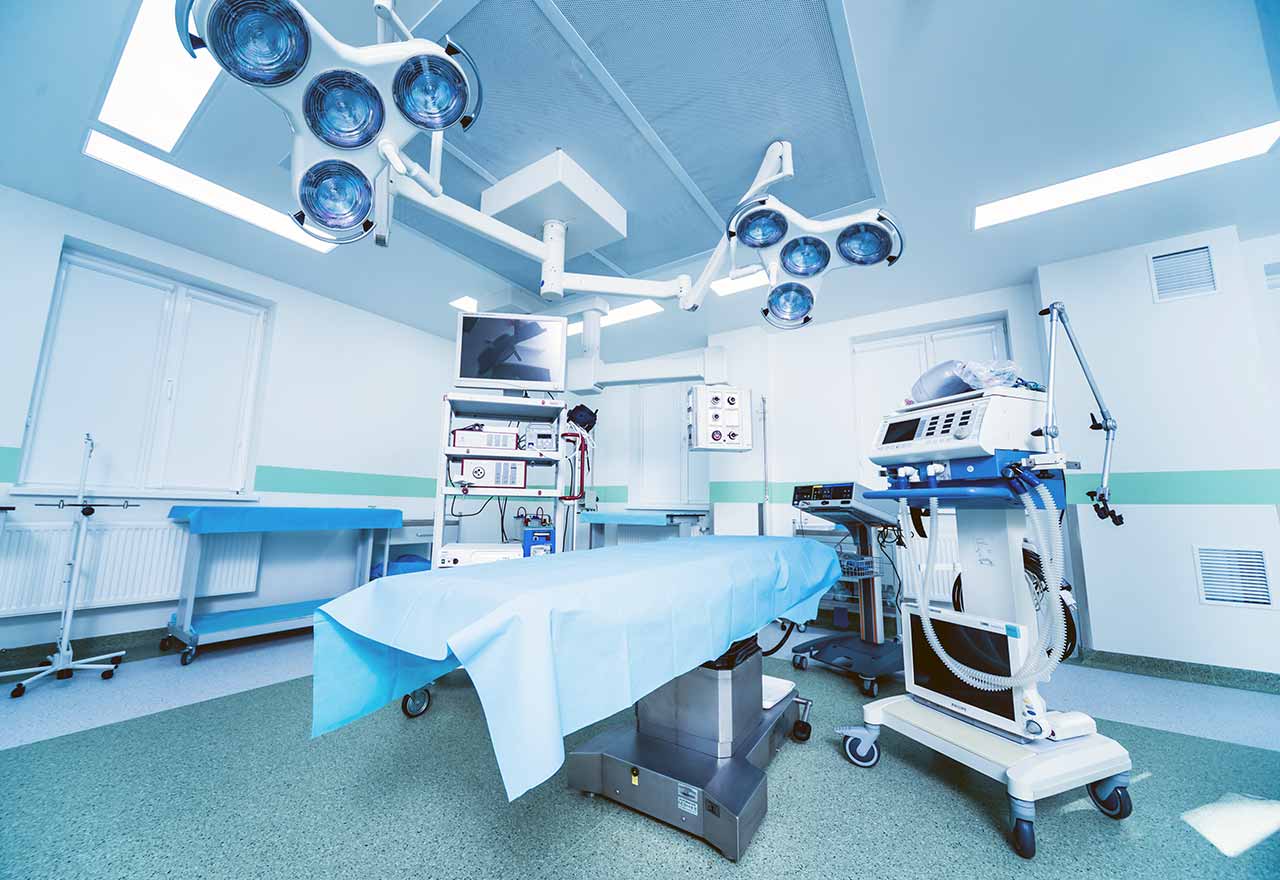
The program includes:
- Initial presentation in the clinic
- case history collection
- general clinical examination
- laboratory tests:
- complete blood count
- biochemical analysis of blood
- TSH-basal, fT3, fT4
- differential blood count
- inflammation indicators (CRP, ESR)
- indicators of blood coagulation
- CT/MRI scans of the whole body
- needle biopsy of the bone marrow
- spinal tap and examination of CSF
- examination by experts in:
- cardiology
- otolaryngology
- immunology
- ophthalmology
- radiation therapy of brain
- symptomatic treatment
- control examinations
- cost of essential medicines and materials
- nursing services
- full hospital accommodation
- explanation of future recommendations
How program is carried out
During the first visit, the doctor will conduct a clinical examination and go through the results of previous laboratory tests and instrumental examinations. After that, you will undergo an additional examination, including complete blood count, laboratory assessment of liver and kidney function. Based on the received results, the physician will conduct radiotherapy planning with the help of CT or MRI, make the permanent tattoo marks on the skin and conduct CT simulation in order to assess the accuracy of the rays and the radiation dose. If necessary, related medical specialists will be involved in the elaboration of a treatment regimen (tumor board).
Radiation therapy is carried out as the inpatient procedure, with mandatory admission to the hospital. Before each session the physician will assess your general condition and the marks on the skin. After that, you will be placed in a shielded radiation therapy room, on a special table.
Each radiation therapy session lasts less than half an hour (including preparation). All this time, doctors and nurses are monitoring your condition, you can communicate with them through a loudspeaker. The procedure is completely painless. Depending on the planned course of treatment, you will have from 1 to 3-5 sessions of radiation therapy a week.
After the completion of the radiation therapy course, you will undergo control examinations aimed at assessing your condition and efficacy of treatment. After that you will receive the medical report with detailed recommendations regarding further follow-up and treatment. In the future, you will be able to have a distant consultation with your attending physician and schedule the next course of treatment, if necessary.
Required documents
- Medical records
- MRI/CT scan (not older than 3 months)
- Bone marrow biopsy results (if available)
Service
You may also book:
 BookingHealth Price from:
BookingHealth Price from:
About the department
The Department of Pediatrics and Adolescent Medicine at the HELIOS Clinic Krefeld offers the full range of services in these medical fields. The department specializes in the diagnosis and treatment of immunological, rheumatological diseases, diseases of the gastrointestinal tract, liver, kidneys, oncological, hematological diseases, heart diseases, diabetes and other endocrine disorders in children and adolescents. Also, treatment and care for newborns, premature babies are provided here. The department is headed by Prof. Dr. med. Tim Niehues.
The department is one of the few medical institutions in Germany with unique experience in the field of differential diagnosis and treatment of children and adolescents with primary immune and rheumatic diseases. In the field of immunology, the methods of treatment range from drug therapy up to surgical interventions. In rheumatic diseases, in addition to drug therapy, imaging techniques, such as MRI, or small invasive procedures, such as puncture, are often used.
In the field of gastroenterology, much attention is paid to the diagnosis and treatment of children and adolescents with congenital or acquired intestinal insufficiency, chronic inflammatory bowel diseases and functional abdominal pain.
Here are also treated many endocrine disorders, such as growth disorders (tall and short stature), impaired puberty, overweight, hirsutism (excessive hair growth in women), polycystic ovary syndrome, bone metabolism disorders, thyroid diseases, congenital diseases of the thyroid, adrenal glands, pituitary and genital organs, genetic disorders (for example, Shereshevsky-Turner syndrome, Prader-Willi syndrome, Klinefelter syndrome), etc.
The department has an extensive experience in treating children and adolescents with type 1 and type 2 diabetes and more rare forms of pathology, for example, type 3 diabetes (for example, juvenile insulin-independent diabetes mellitus), diabetes in cystic fibrosis and diabetes in newborns. The specialists of the department provide medical care both in the initial detection of diabetes mellitus and in its complications (for example, severe hypoglycemia or chronic complications of diabetes mellitus). Treatment options include traditional insulin therapy with a syringe or an insulin pump. There is the possibility of continuous glucose measurement. A decisive role in the treatment of the disease is played by individual, group and family courses, on which patients are taught a new way of life with diabetes.
Another important focus of the department is the diagnosis and treatment of cancers, benign blood diseases in children and adolescents. In the field of pediatric oncology, the doctors of the department often have to deal with diseases, such as leukemias (for example, acute lymphocytic or myeloid leukemia), lymphomas (Hodgkin's lymphoma and non-Hodgkin's lymphoma), soft tissue tumors (for example, neuroblastomas, rhabdomyosarcomas, nephroblastomas). The most common pediatric blood diseases are anemias (for example, in iron or vitamin B12 deficiency, hemolytic anemias, hemoglobinopathies, such as thalassemia and sickle cell anemia), thrombocytopenia, leukopenia, etc.
In addition, the department provides the diagnosis and treatment of kidney diseases, such as urinary tract infections, urination disorders, kidney malformations, polycystic kidney disease, kidney dysfunction, kidney inflammations, kidney failure, high blood pressure due to kidney dysfunction, urinary incontinence, congenital and acquired nephropathies.
The department’s range of services is complemented by the diagnosis and treatment of heart disease in children and adolescents. The treatment methods cover medical therapy, cardiac catheterization and open surgical interventions. The most characteristic are congenital and acquired heart diseases, cardiac arrhythmias, hypertension and heart murmurs.
Both diagnosis and treatment of cystic fibrosis are also offered. In addition to drug therapy, there are often used inhalation therapy, physiotherapy, consultations on nutrition.
Curriculum vitae
- 1984 -1991 Study of Medicine at the University of Lübeck, University College Dublin, Ireland, Albert Ludwig University of Freiburg, University of California, San Francisco (USA).
- 1991 - 1993 Cornell University New York (USA), Department of Molecular Medicine at the North Shore University Hospital of Manhasset (NSUH). Postdoctoral Fellowship, Molecular and Cellular Immunology (together with Prof. Jack Silver), PhD.
- 1993 - 2007 Department of Pediatrics at the University Hospital Düsseldorf.
- 1998 Visiting Scientist at the Department of Pediatrics, Division of Pediatric Allergology and Immunology, North Shore University Hospital (NSUH), New York University (together with Prof. S. Pahwa).
- 1999 Board Certification in Pediatrics and Adolescent Medicine.
- 2002 Venia Legendi (Thesis: "HIV Infection in childhood: T-cell-reconstitution after antiretroviral therapy").
- 2005 Accreditation of the Pediatric Immunology Unit as Jeffrey Modell Immunodeficiency Center Düsseldorf.
- 2006 Sabbatical at the University of California, San Diego (UCSD), Department of Pediatrics (together with Prof. S. Albani).
- 2007 Appointment as the Head of the Department of Pediatrics and Adolescent Medicine, HELIOS Clinic Krefeld.
- 2008 Appointed as Professor of Pediatrics at the Heinrich Heine University Düsseldorf.
- 2009 Vice-Chairman, HELIOS Hospital Krefeld.
Photo of the doctor: (c) Helios Klinikum Krefeld
About hospital
Founded in 2014, the HELIOS Clinic Krefeld is one of the most modern medical facilities in Germany today. A team of highly qualified specialists, innovative medical equipment and comfortable accommodation conditions – the clinic has everything to make the treatment run smoothly and efficiently. Having crossed the threshold of the clinic, you will feel the home-like cozy and modern atmosphere. Perhaps you will even forget that you are in the clinic.
As a maximum care medical center, the clinic covers practically all areas of medicine: cardiology, gastroenterology, oncology and hepatology, nephrology, diabetology and rheumatology, general, abdominal and minimally invasive surgery, dermatology and venereology, angiology, cardiac surgery and other medical fields.
Thanks to a continuous fruitful cooperation with the world’s leading universities, research and medical centers, the clinic provides the highest treatment standards.
The doctors of the clinic take up the treatment of the most severe cases, including serious spinal injuries and diseases related to the disorders of the central nervous system. The nursing staff of the clinic regularly undergoes both advanced and special trainings, which contributes to a high-quality, professional patient care at all stages of treatment.
The clinic adheres to a strict quality management system. Not only the patient care, but also the entire treatment process (including monitoring and patient care after the operation) are subject to the quality certification.
Photo: (c) depositphotos
Accommodation in hospital
Patients rooms
The patients of the HELIOS Clinic Krefeld live in comfortable single and double rooms. Each room has a bathroom with a toilet and shower. The room is furnished with a comfortable bed, bedside table, TV, radio and telephone. Each room has access to the Internet, which can be used at extra charge.
The clinic offers an excellent infrastructure: a beautiful park with playgrounds for children, a cafeteria, a chapel, which regularly hosts church services, a prayer room for Muslims, a beauty salon, a shop with a large selection of magazines, drinks and personal hygiene items, an ATM and a large parking lot.
Meals and Menus
The restaurant of the clinic offers three meals a day. For breakfast, lunch and dinner, it serves a large selection of dishes that will please even spoiled gourmets. Every day, the menu features vegetarian and dietary dishes. It is possible to order any dish without leaving the room. In addition, the clinic has a cafeteria where one can always have a cup of aromatic coffee, hot tea or enjoy an exquisite refreshing drink. Also, the cafeteria menu offers many tasty snacks and dishes.
Further details
Standard rooms include:




